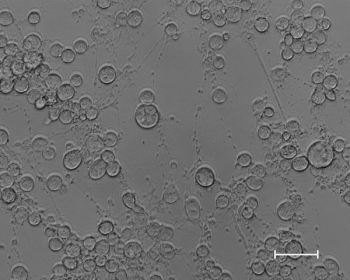
- dvm360 November 2021
- Volume 52
FDA’s CVM determines TriviumVet’s feline HCM program eligible for expanded conditional approval pathway
The company was granted to pursue conditional approval as the CVM recognizes there is no current approved animal drug in the US for treating feline HCM.
TriviumVet, an Ireland-based animal health research and development company, announced that the Food and Drug Administration's (FDA) Centre for Veterinary Medicine (CVM) has deemed it can pursue the expanded conditional approval pathway for its feline hypertrophic cardiomyopathy (HCM) therapeutic candidate, Felycin—a patented, delayed-release rapamycin formulation.
Under the 2018 reauthorization of the FDA's Animal Drug User Fee Act (ADUFA) program, the US Congress permitted the FDA a limited expansion of the conditional approval pathway for certain new animal drugs. According to a company
As TrviumVet was granted permission to pursue conditional approval, CVM understands there is no existing approved animal drug in the US for treating feline HCM—a serious and life-threatening disease that affects about 15% of cats.2
"We are very pleased with this positive response from CVM as it establishes a pathway to first conditional and then full approval, potentially expediting access to the drug for millions of at-risk patients. We are excited to share results of our clinical work early next year and intend to submit our final study report to CVM once these results are available,” said Louise Grubb, MBS, BSc, CEO of TrviumVet, in the release.1
"At TriviumVet we strive to produce treatments for clinical unmet needs and feline HCM is one of the diseases that must urgently be addressed. The interest in this treatment was highlighted in our December 2020 survey of US veterinarians carried out by Brakke Animal Health where 80% of respondents were likely to prescribe a novel product to their HCM patients," she added.
TriviumVet is conducting clinical research in client-owned cats to analyze Felycin's effectiveness in treating HCM. Previous results from laboratory animal studies and effects demonstrated in human organ transplant patients imply Felycin has the potential to slow or reverse the adverse cardiac remodelling underlying the disease process in HCM, according to the release.1 Preclinical investigations have demonstrated repeated dosing with Felycin is well tolerated by healthy cats, at multiples of the intended therapeutic dose.
Learn more about TriviumVet and its feline HCM study
References
- FDA's Centre for Veterinary Medicine deems TriviumVet's feline HCM program eligible for expanded conditional approval pathway. News release. September 16, 2021; TriviumVet. Accessed September 17, 2021. https://www.prnewswire.com/news-releases/fdas-centre-for-veterinary-medicine-deems-triviumvets-feline-hcm-program-eligible-for-expanded-conditional-approval-pathway-301378597.html
- NC State Veterinary Hospital. Client information sheet: Feline hypertrophic cardiomyopathy. https://cvm.ncsu.edu/wp-content/uploads/2020/07/Feline-Hypertrophic-Cardiomyopathy-client-handout-6.29.2020.pdf#:~:text=Feline%20Hypertrophic%20Cardiomyopathy%20(HCM)%20is,pressure%20or%20an%20overactive%20thyroid. Accessed September 17, 2021.
Editors note: All veterinary technician content for this month is supported by Banfield Pet Hospital.
Articles in this issue
about 4 years ago
National Pet Diabetes Month: Raising awareness and making stridesabout 4 years ago
A breakthrough joint supplement for dogs and catsabout 4 years ago
Dental Pain and Inflammation—Acute and Chronicabout 4 years ago
Veterinary technicians embrace their rolesabout 4 years ago
Understanding and diagnosing canine hypothyroidismover 4 years ago
Embark Veterinary releases first-ever purebred dog DNA kitover 4 years ago
Zoetis adds digital cytology testing to Vetscan ImagystNewsletter
From exam room tips to practice management insights, get trusted veterinary news delivered straight to your inbox—subscribe to dvm360.





